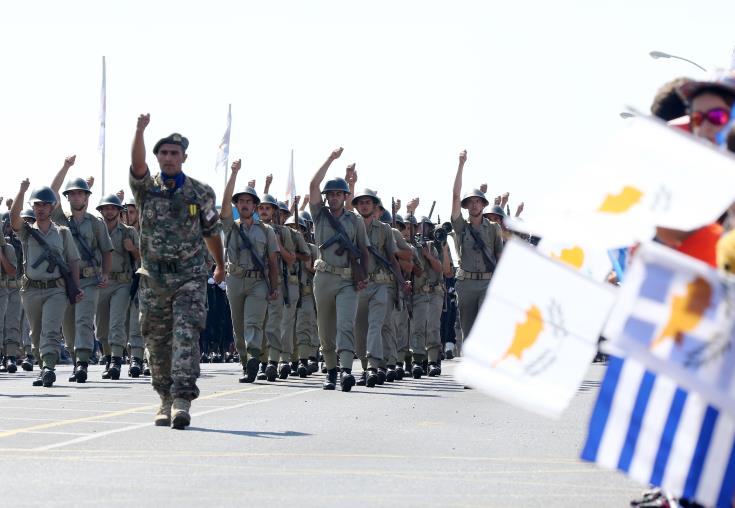Independence Day, especially the landmark 60th anniversary, is nothing to celebrate this year.
And it’s not just the coronavirus measures that have downplayed what should have been a significant milestone.
It’s a miracle that this fragile state has survived for six decades.
A turbulent contemporary history has scarred this young Republic, that only lived in its initial version for just over three years.
By Christmas 1963, troubles started between the island’s two communities, stoked by Greece and Turkey, which continue to bicker to this day.
Nationalist hysteria, combined with the lust to unite the island with the respective motherlands, led to growing tension that culminated with the failed coup to topple Makarios.
This gave Ankara the excuse it had longed for and opened the floodgates to the catastrophic invasion and continued occupation of the northern part of the island.
The Republic of Cyprus, switching allegiances between the Non-Aligned Movement, the British Commonwealth and now, the European Union, is still unsure where it stands.
But both sides of the divide seem comfortable with the notion that they can look to Greece and Turkey for support.
This complacency of an illusional sense of security is also the reason why Cyprus has been following geopolitical developments from the back seat, not spearheading them, or even seeming to be with the leading pack.
Rebuilding the country and restructuring the economy after 1974 provided a services model that seems to have worked at the time.
It is clearly outdated, lambasted by our European partners for resorting to a get-rich-quick formula with cash-for-passports, instead of investing in the longer term and ensuring a sustainable economy.
After all the ills that have blighted this island, joining the European Union could be seen as the one good thing that has happened in a long time.
Energy curse
Even the recent energy discoveries have turned out to be a curse instead of a blessing.
Where the country could have benefitted from millions in annual revenues from the oil and gas sector, there is a carrot-and-stick approach of using energy resources as a means to getting the ‘other’ side to return to peace talks.
Now, it is Turkey calling the shots, not allowing the Republic of Cyprus to develop this sector which should have contributed to the advancement of Greek and Turkish Cypriots.
And the Republic of Cyprus does not have much to show for when it comes to true friends.
European solidarity has been tested time and again and failed.
Our EU partners want to oust the obnoxious dictator of Belarus but refuse to chastise Turkey, even mildly, for promoting gunboat diplomacy and piracy in the Mediterranean.
Ankara’s regional diplomacy is trying to change the rules of the game, especially within NATO, where no one dares to criticise Turkey.
There is the stand-off with Greece, its subversion in Libya, occupation of northern Syria and now, military intimidation of Armenia, via its satellite Azerbaijan.
What is more, its on-again, off-again relationship with Israel is based on regional security interests and commercial deals, rather than national fundamentals.
Erdogan wants to find some leverage that will put him at the same table as Russia’s Vladimir Putin, which is why proxy wars in Syria, Libya and Armenia hide more than is seen.
If the Republic of Cyprus wants to survive to its centenary, in whatever form, as long as the people on this island coexist peacefully, then a gearshift is necessary.
The government in Nicosia and the entire political leadership must first decide if they want to resolve the island’s division.
After that, genuine friends are needed, with the only ‘neutral’ force that can be seriously considered is Egypt’s El Sisi.
The economy needs to be remodelled based on sustainability, clean energy, and social justice.
Progress will be a powerful and credible resource to convince the people that a solution to division is in the best interest of all, including our neighbours while striving to return stability to Lebanon, and rebuilding Syria from the rubble.
The Republic’s 60th independence anniversary should have been a period of reflection. Instead, it is a day of muted celebration, not knowing what we should be joyful about.
Even the Postal Service has not issued a 60th-anniversary commemorative stamp while the annual parade, due to Covid-19 restrictions, demoted to an empty ceremony with no bystanders, and hardly any realising the importance of the day.
Instead of arguing over who did what to whom, politicians should roll up their sleeves and get down to some serious work.
Developments in the region (and the world) are fast passing us by and if we don’t get our act together in time for the next milestone anniversary, there will be nothing left to celebrate.










